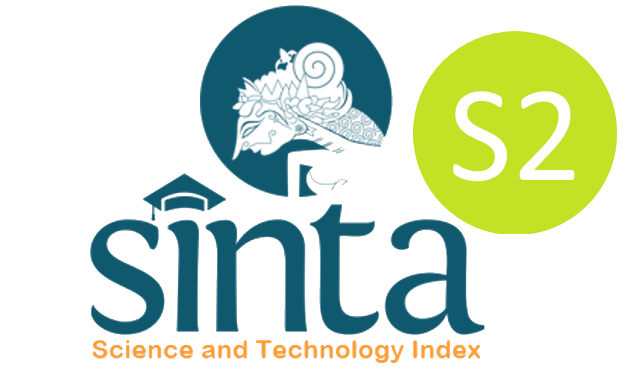Abstract
The relationship between teachers and parents plays an important role not only in determining the success of student learning at school but also in influencing the subjective well-being of teachers. However, the ideal teacher-parent relationship is not always possible. Often there are conflicts between parents and teachers that make student learning outcomes at school not optimal. A poor relationship between teachers and parents will also reduce the subjective well-being of teachers. This paper will analyze the management of good teacher-parent relationship to improve the subjective well-being of teachers. This study uses a literature review method from 14 research journal articles to identify the problems that become barriers on parents teacher relationships. The study found that differences in perceptions of student abilities between teachers and parents caused the most conflicts in the teacher-parent relationship.
Furthermore, the results of the study found that trust and communication skills are two important elements for managing teacher-parent partnerships which ultimately play a role in increasing teachers subjective well-being. The implications of the results of this study become a reference for school institutions to pay more attention to the subjective well-being of teachers by designing strategies to improve teacher-parent relationship.
References
Addi-Raccah, A., & Grinshtain, Y. (2021). Teachers’ professionalism and relations with parents: teachers’ and parents’ views. Research Papers in Education, 00(00), 1–23. https://doi.org/10.1080/02671522.2021.1931949
Bilton, R., Jackson, A., & Hymer, B. (2018). Cooperation, conflict and control: parent–teacher relationships in an English secondary school. Educational Review, 70(4), 510–526. https://doi.org/10.1080/00131911.2017.1410107
Bottiani, J. H., Duran, C. A. K., Pas, E. T., & Bradshaw, C. P. (2019). Teacher stress and burnout in urban middle schools: Associations with job demands, resources, and effective classroom practices. Journal of School Psychology, 77(September), 36–51. https://doi.org/10.1016/j.jsp.2019.10.002
Cueto, S., Prieto, J. A., Nistal, P., Abelairas-Gómez, C., Barcala-Furelos, R., & López, S. (2017). Teachers’ Perceptions of Preschool Children’s Psychomotor Development in Spain. Perceptual and Motor Skills, 124(4), 725–739. https://doi.org/10.1177/0031512517705534
De Cordova, F., Berlanda, S., Pedrazza, M., & Fraizzoli, M. (2019). Violence at school and the well-being of teachers. The importance of positive relationships. Frontiers in Psychology, 10(AUG), 1–9. https://doi.org/10.3389/fpsyg.2019.01807
Heffernan, A., Longmuir, F., Bright, D., & Kim, M. (2019). Perceptions of teachers and teaching in Australia. November, 1–21. https://www.monash.edu/perceptions-of-teaching/docs/Perceptions-of-Teachers-and-Teaching-in-Australia-report-Nov-2019.pdf.
Karila, K., & Alasuutari, M. (2012). Drawing Partnership on Paper: How do the Forms for Individual Educational Plans Frame Parent-Teacher Relationship? International Journal about Parents in Education Copyright European Research Network about Parents in Education, 6(1), 14–26.
Lasater, K. (2016). Parent – Teacher Conflict Related to Student Abilities : The Impact on Students and the Family – School Partnership. 26(2), 237–262. http://www.schoolcommunitynetwork.org/SCJ.aspx%0A237
Leenders, H., Haelermans, C., de Jong, J., & Monfrance, M. (2018). Parents’ perceptions of parent–teacher relationship practices in Dutch primary schools–an exploratory pilot study. Teachers and Teaching: Theory and Practice, 24(6), 719–743. https://doi.org/10.1080/13540602.2018.1456420
Major, S. O., Seabra‐Santos, M. J., & Martin, R. P. (2015). ARE WE TALKING ABOUT THE SAME CHILD? PARENT–TEACHER RATINGS OF PRESCHOOLERS’SOCIAL–EMOTIONAL BEHAVIORS. Psychology in the Schools, 52(8), 789-799.
MacIntyre, P. D., Gregersen, T., & Mercer, S. (2020). Language teachers’ coping strategies during the Covid-19 conversion to online teaching: Correlations with stress, wellbeing and negative emotions. System, 94, 102352. https://doi.org/10.1016/j.system.2020.102352
Minke, K. M., Sheridan, S. M., Kim, E. M., Ryoo, J. H., & Koziol, N. A. (2014). Congruence in parent-teacher relationships: The role of shared perceptions. The elementary school journal, 114(4), 527-546.
Mutton, T., Burn, K., & Thompson, I. (2018). Preparation for family-school partnerships within initial teacher education programmes in England. Journal of Education for Teaching, 44(3), 278–295. https://doi.org/10.1080/02607476.2018.1465624
Page, M. J., McKenzie, J. E., Bossuyt, P., Boutron, I., Hoffmann, T. C., Mulrow, C. D., Shamseer, L., Tetzlaff, J. M., Akl, E., Brennan, S. E., Chou, R., Glanville, J., Grimshaw, J. M., Hróbjartsson, A., Lalu, M. M., Li, T., Loder, E. W., Mayo-Wilson, E., McDonald, S., … Moher, D. (2021). The prisma 2020 statement: An updated guideline for reporting systematic reviews. Medicina Fluminensis, 57(4), 444–465. https://doi.org/10.21860/medflum2021_264903
Parker, P. D., Martin, A. J., Colmar, S., & Liem, G. A. (2012). Teachers’ workplace well-being: Exploring a process model of goal orientation, coping behavior, engagement, and burnout. Teaching and Teacher Education, 28(4), 503–513. https://doi.org/10.1016/j.tate.2012.01.001
Renshaw, T. L., Long, A. C. J., & Cook, C. R. (2015). Assessing adolescents’ positive psychological functioning at school: Development and validation of the student subjective wellbeing questionnaire. School Psychology Quarterly, 30(4), 534–552. https://doi.org/10.1037/spq0000088
Renshaw Tyler L. (2020). Teacher Subjective Wellbeing Questionnaire (TSWQ): Measure and User Guide. 3–5. https://smhlab.org/resources
Richards, J. (2012). Teacher Stress and Coping Strategies: A National Snapshot. Educational Forum, 76(3), 299–316. https://doi.org/10.1080/00131725.2012.682837
Santiago, R. T., Garbacz, S. A., Beattie, T., & Moore, C. L. (2016). Parent‐teacher relationships in elementary school: An examination of parent‐teacher trust. Psychology in the Schools, 53(10), 1003-1017.
Sheridan, S. M., Bovaird, J. A., Glover, T. A., Andrew Garbacz, S., Witte, A., & Kwon, K. (2012). A randomized trial examining the effects of conjoint behavioral consultation and the mediating role of the parent-teacher relationship. School Psychology Review, 41(1), 23–46. https://doi.org/10.1080/02796015.2012.12087374
Snyder, H. (2019). Literature review as a research methodology: An overview and guidelines. Journal of Business Research, 104(August), 333–339. https://doi.org/10.1016/j.jbusres.2019.07.039
Song, H., Gu, Q., & Zhang, Z. (2020). An exploratory study of teachers’ subjective wellbeing: understanding the links between teachers’ income satisfaction, altruism, self-efficacy and work satisfaction. Teachers and Teaching: Theory and Practice, 26(1), 3–31. https://doi.org/10.1080/13540602.2020.1719059
Symeou, L., Roussounidou, E., & Michaelides, M. (2012). “ I Feel Much More Confident Now to Talk With Parents ”: An Evaluation of In-Service Training on Teacher – Parent Communication. School Community Journal, 22(1), 65–88.
Thijs, J., & Eilbracht, L. (2012). Teachers' perceptions of parent–teacher alliance and student–teacher relational conflict: Examining the role of ethnic differences and “disruptive” behavior. Psychology in the Schools, 49(8), 794-808.
Van Droogenbroeck, F., Spruyt, B., & Vanroelen, C. (2014). Burnout among senior teachers: Investigating the role of workload and interpersonal relationships at work. Teaching and Teacher Education, 43, 99–109. https://doi.org/10.1016/j.tate.2014.07.005
Wang, H., & Hall, N. C. (2021). Exploring relations between teacher emotions, coping strategies, and intentions to quit: A longitudinal analysis. Journal of School Psychology, 86(April), 64–77. https://doi.org/10.1016/j.jsp.2021.03.005
Willemse, T. M., Thompson, I., Vanderlinde, R., & Mutton, T. (2018). Family-school partnerships: a challenge for teacher education. Journal of Education for Teaching, 44(3), 252–257. https://doi.org/10.1080/02607476.2018.1465545
Zulauf-McCurdy, C. A., & Zinsser, K. M. (2021). How teachers’ perceptions of the parent–teacher relationship affect children’s risk for early childhood expulsion. Psychology in the Schools, 58(1), 69–88. https://doi.org/10.1002/pits.22440
Article Revision Table for Reviewers
Recommended Citation
Handayani, Yunita Sri
(2023)
"Management of Teachers-Parents Relationship to Improve Teacher Subjective Well-Being: A Literature Review,"
Psychological Research on Urban Society: Vol. 6:
No.
1, Article 2.
DOI: 10.7454/proust.v6i1.1106
Available at:
https://scholarhub.ui.ac.id/proust/vol6/iss1/2







